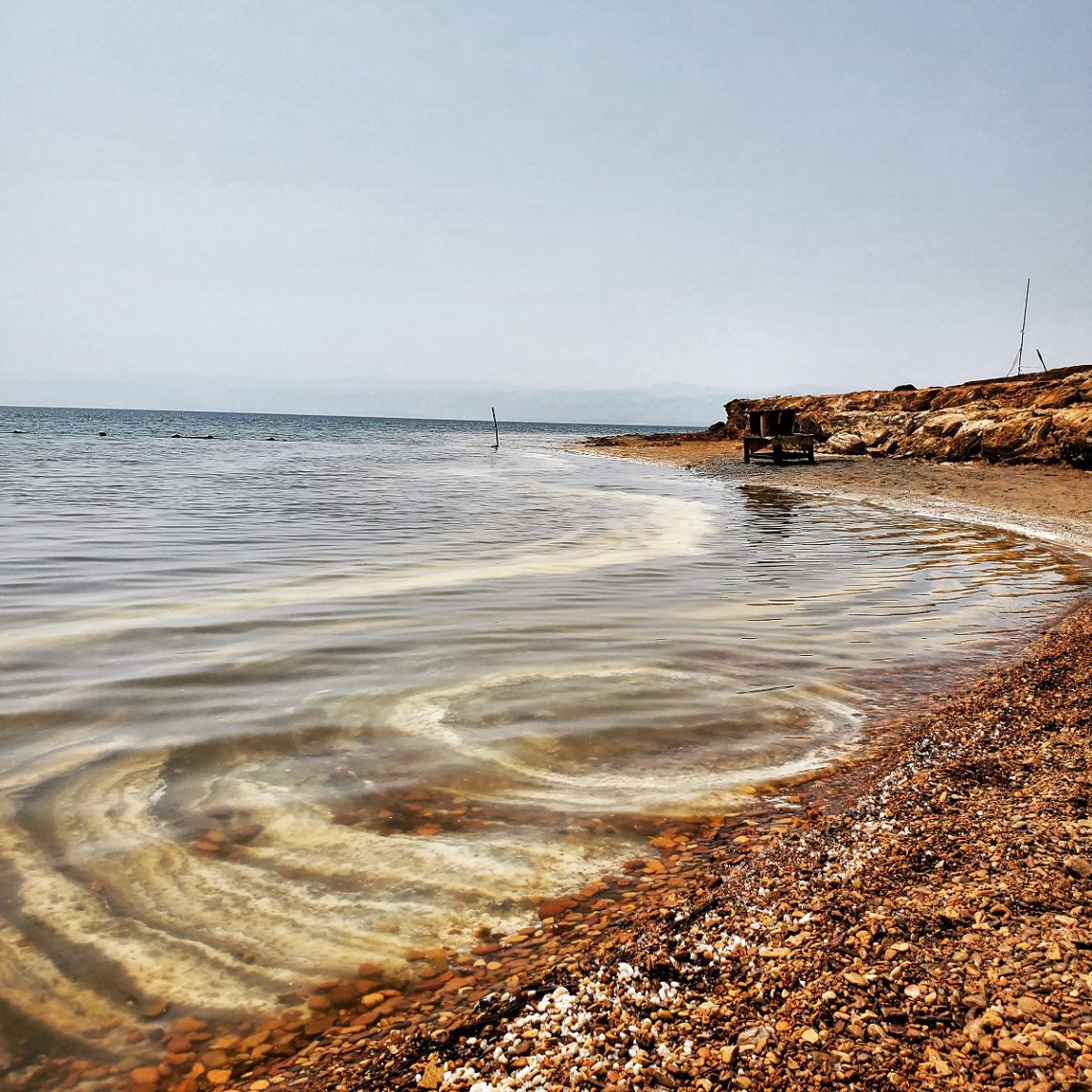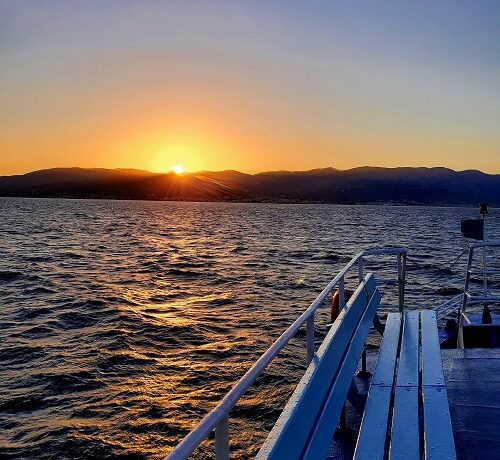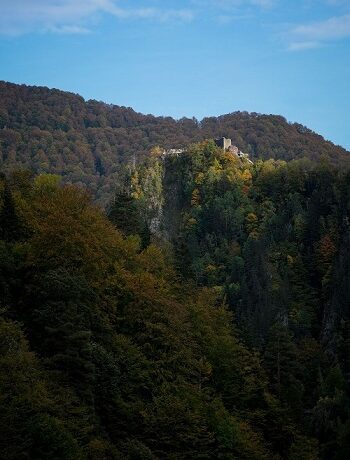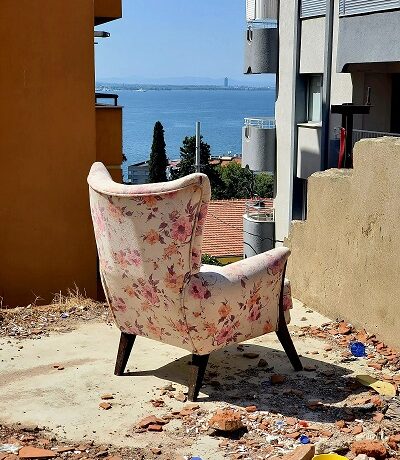There’s almost four and a half million people in the Amman area. Over half of them live in Amman itself. The other half just drives into it, around it, or through it. The air is thick and hot, breath you chew. The diesel fumes puff from the tailpipes of water haulers delivering to most homes, businesses and almost every other vehicle on the road, billowing like dragon’s breath.
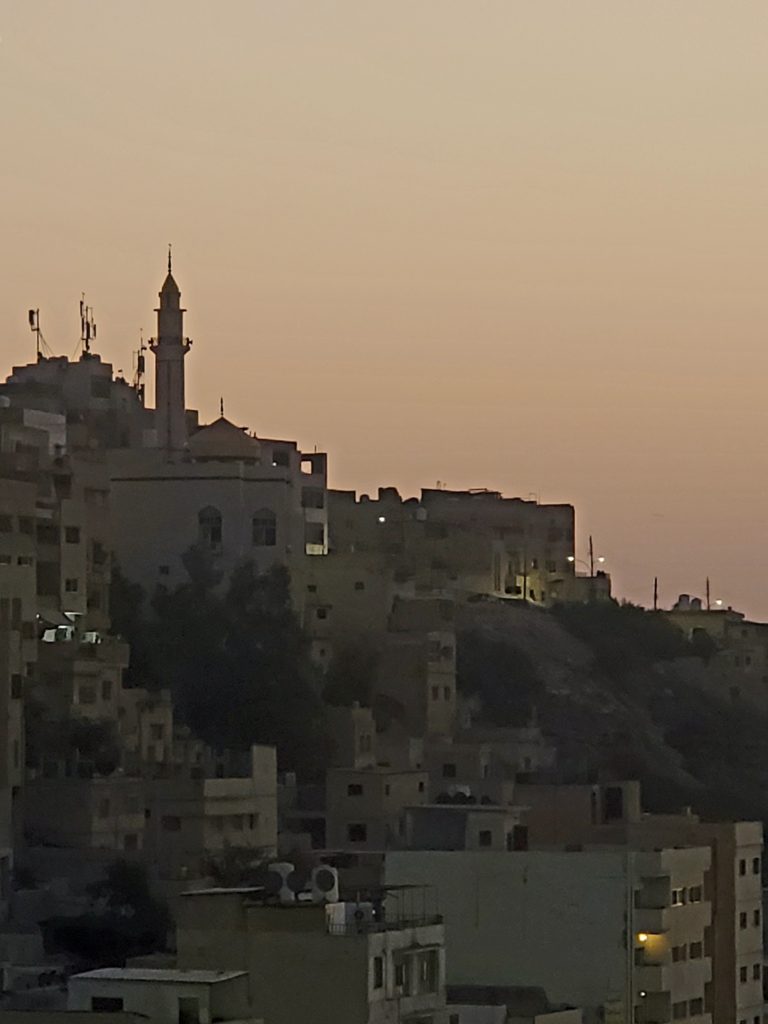
Our guide, Ramzi, zips through with relative ease. His nerves are steel. Ours are not. (We got used to it.) No traffic regulations and signs are more loose guidelines than rules. Police stand or sit in air-conditioned vehicles at checkpoints near speed humps intended to slow traffic but only test the limits of vehicle and passenger suspension. Some newer to the force check for ID and issue fines.
It’s close quarters. The people are hard-working and industrious. They seem to take care of their own, feeding the poor, helping others as they can when need arises. Our guide explains this as we drive from place to place. He explains the history as he knows it and allows us to ask uneducated questions about culture and life and how it came to be as it is now. I saw none of what we would call road-rage, a few discussions in the middle of traffic, yes, but nothing of the rage and violence I have seen. I suppose that really says you’re pissed here. If you’re willing to get out of your car in temperatures of 100+.
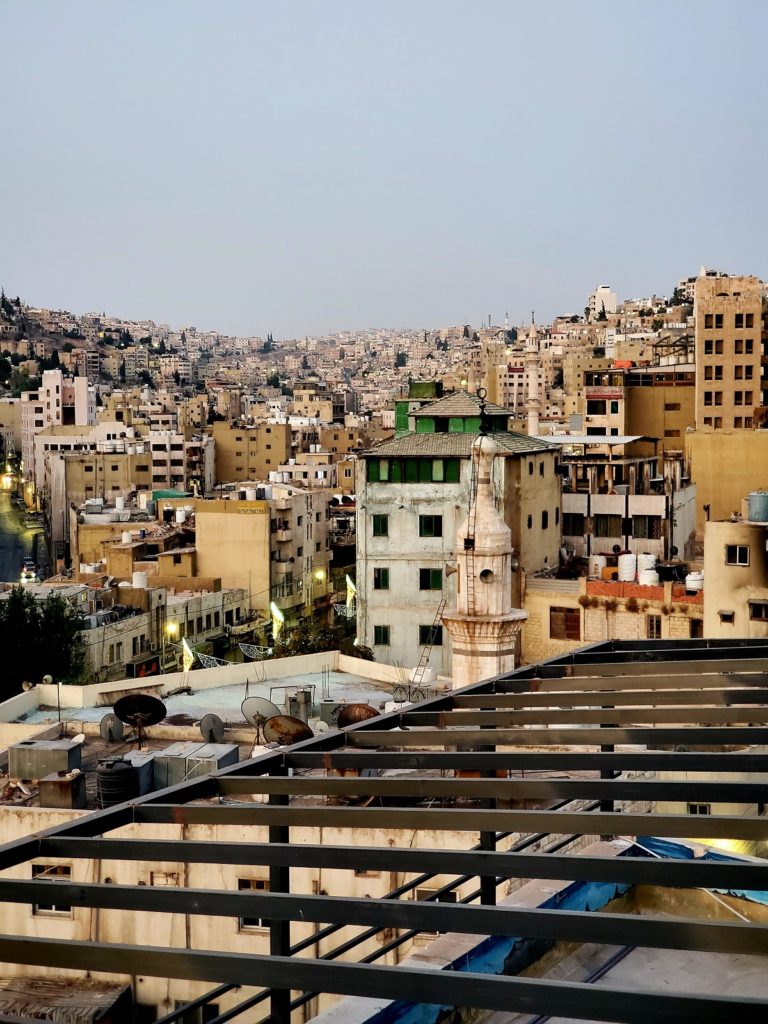
There are some places though, that the temperature defies logic. My lowest point. Not emotionally, but physically. On the earth. The Dead Sea is one of those magical places. It’s a blast furnace with humidity. Every pore on your skin stands out with its own bead of sweat before they run with gravity. I leave a trail wherever I go that dries in seconds or minutes. I change, or try to, dragging my soggy clothing over wet skin and pulling trunks I can’t tell are dry or wet back over a fresh crop of sweat that’s already formed. It’s impossible to drink water as fast as it’s leaving my body. This place really puts in perspective that we truly are made of 70-80% water, and all of mine is steaming like a freshly poured cup of tea in any other place but here.
Near the water, it’s cooler. Maybe. I don’t know I can’t tell. The stones along the shore are frying pan hot to pick up. Concentric rings of salt run a wavering course along the shoreline just under the water’s surface like growth rings of a tree. Small ripples driven by the wind find their way to shore, turning into ribbons of translucent silk across the water. The salt, suspended in the water, looks like oil in the water’s current and as it runs through your hands.
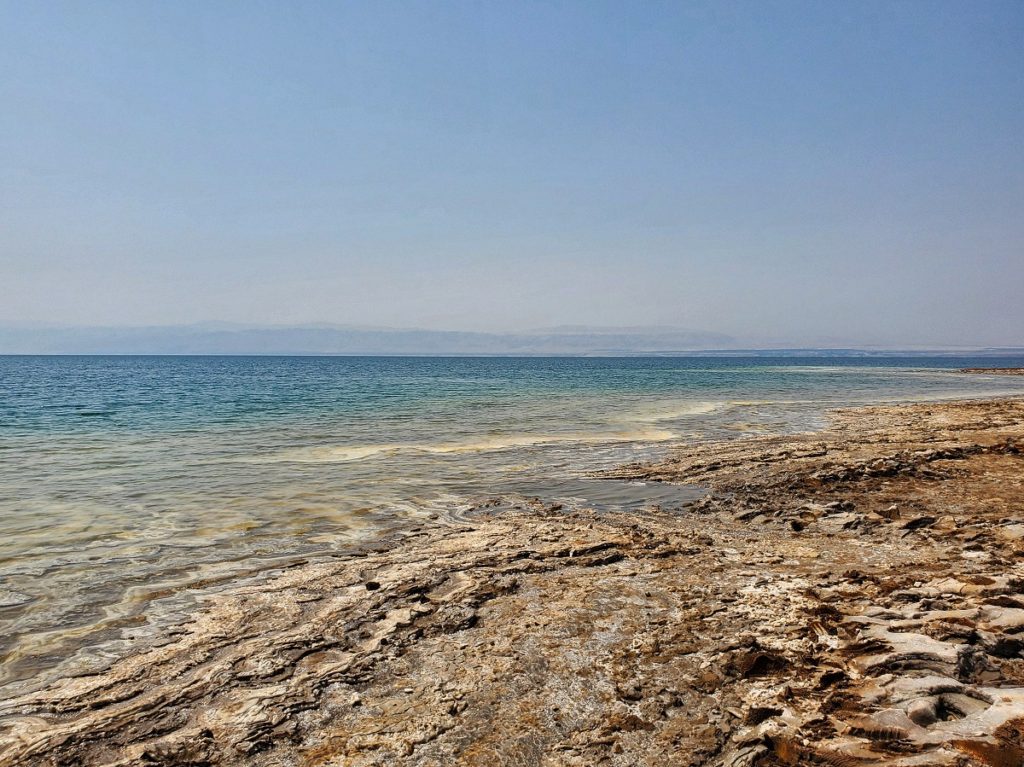
In this one place. Without paddling, devices, or holding my breath. I can float. Yes, that’s right, miraculous. Cool currents of water run with the warmth as I lay back. Water rushes my ears, my world goes quiet, I close my eyes. It’s impossible not to relax. I think of the book, the story I’ve written. My character has done the same as I am now, centuries separating the two of us, but I’m here.
Splashing breaks my trance and I sit up. It makes no sense to my brain, but I can sit, or stand. Balanced in the water and still float. I can’t touch the bottom. I can’t even make myself sink. It’s just not possible. The other thing that isn’t possible is putting out the fire that’s been lit in each of my eye sockets. The amount of salt in the water is like kerosene. There is no amount of rubbing that will take it away. I find a sand bar and sit, waiting. The burning won’t stop. Tears run down my face until Ashley pours a water bottle over my face. Instantly, I’m back to normal. Again. Strange.
We smear mud on ourselves like the others here from different places around the globe do and enjoy the little beach, but I keep going back to that floating quiet. The years between my character and me, but I couldn’t feel closer. This is what all the travel is for.
Another wresting match with my clothes, still wet with sweat. Now, I’m sweating worse than I was before, I think. I can’t tell. The air conditioning is amazing in the restaurant, and I can’t help a quick shiver that hits me. Four or five attendants asking in their way if they can help guide us to what we need greet us.
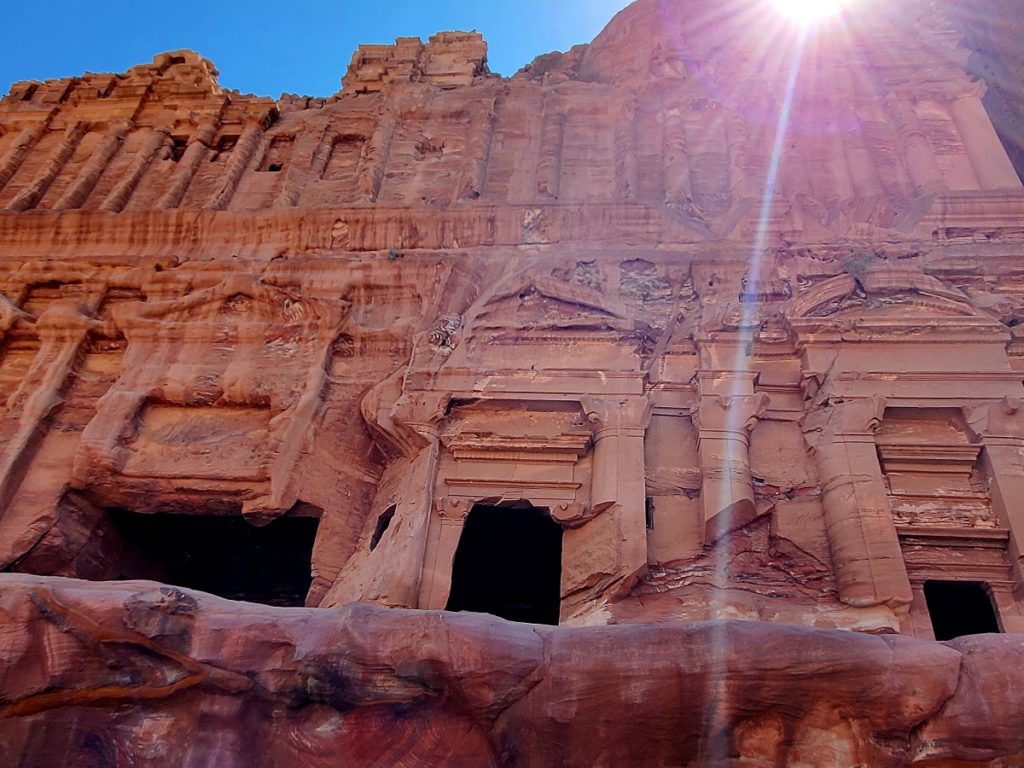
Back to Amman for our last night there before heading to Petra. Haggling happens on our behalf in Arabic for accommodation and tours at our next destination and for our future transport to the border. If haggling isn’t a sport, it should be. It’s an art form here. It’s a seller’s game, and it’s everywhere. We learn not to be targets as quick as we can. We play along the best we can.
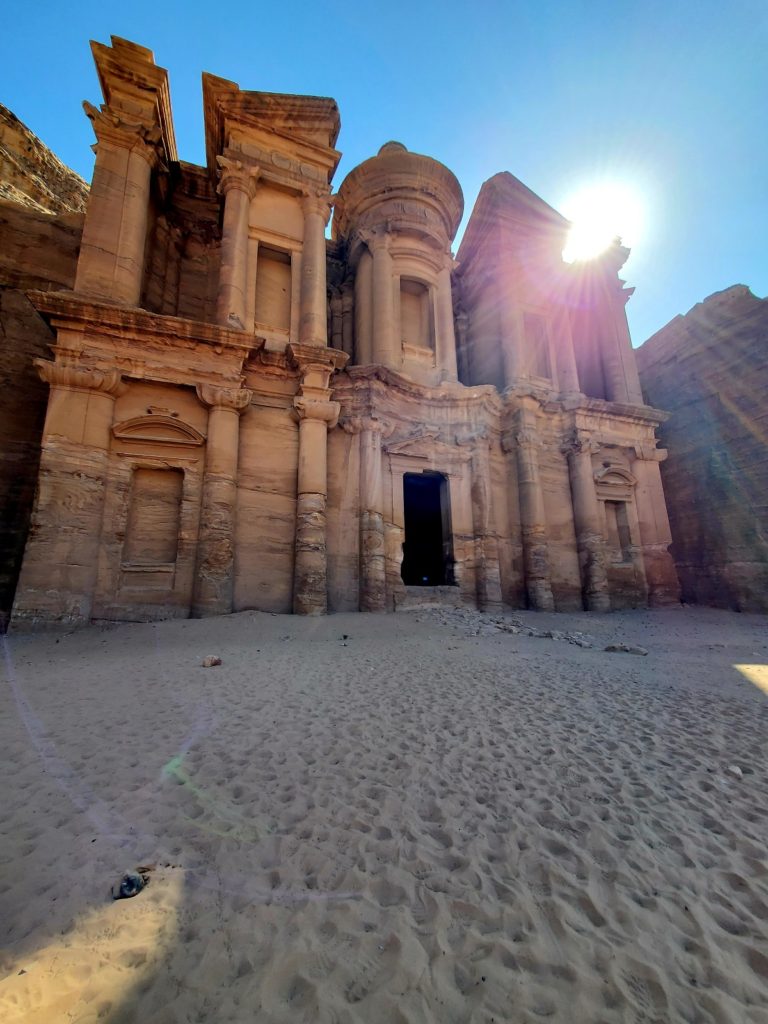
Carved stone. By human hands and by nature, towers above us in slot canyons called wadi and in stone façade of tombs and caves. We walk on streets the Romans built during their time here. The channels cut in the stone speak of the importance of water collecting here. Destroying these channels was the only way the Rome could take this city, and it was old by that time. The once column lined street that opens into the basin market is paved with stones, placed in front of the temples they built. The carved tombs, in my opinion, can’t be outdone by anything Rome built here. Cut from the top down into the mountain itself is an amazing feat. Tool marks leave designs on the stone’s face, the color paints its own patterns from within. Waves of reds, browns, purple and beige.
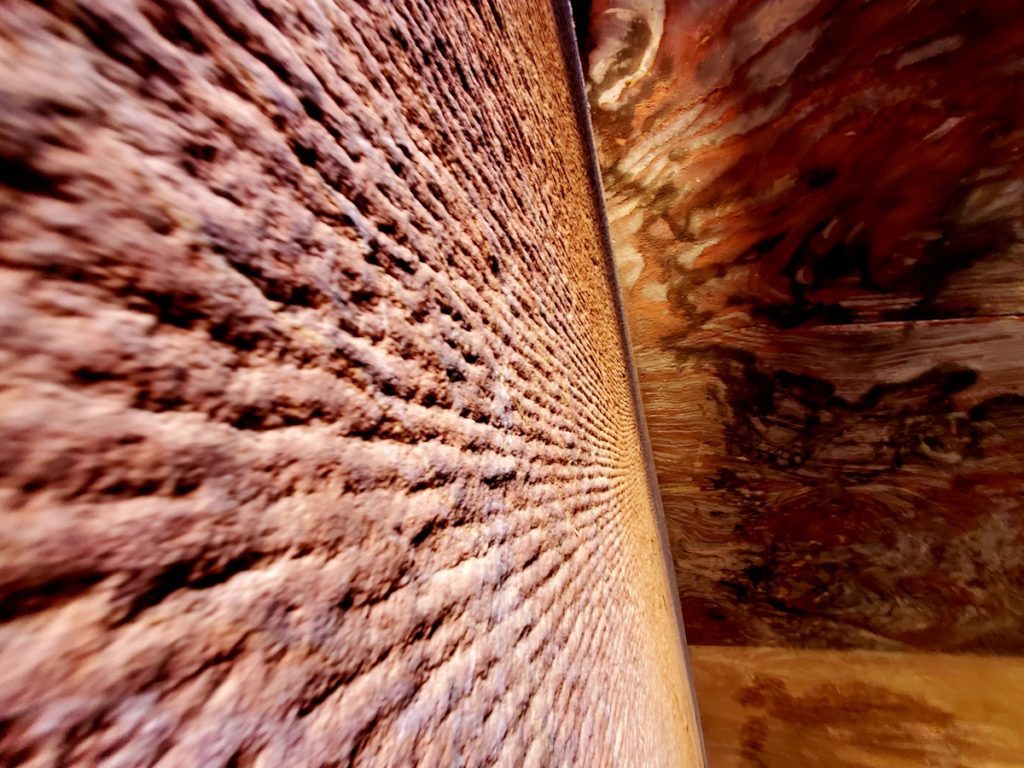
The ingenuity and industrious nature of the people then shows through their accomplishments, and the shout of “I give you good deal. Two for one Dinar!” tells me they’ve been sharpening their business skills over more years than they have the tools used by skilled hands millennia ago to create what can see.

